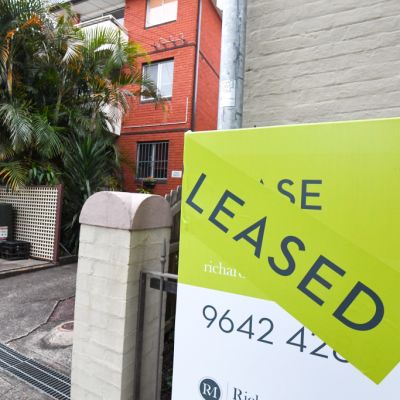End of COVID disaster payments looms large for stressed tenants

More tenants could find themselves struggling to pay rent as they emerge from lockdown, faced with losing income support payments before they can fully return to work.
With the end of the COVID disaster payment fast approaching, more tenants could find themselves in rental stress or having to vacate a property they can no longer afford, tenant groups fear.
Those who have lost work in lockdown will see their payments cut within weeks, with support to be phased out once a state or territory hits the 80 per cent double vaccination targets – which NSW is expected to reach by this weekend. The ACT, at about 75 per cent, won’t be far behind, while Victoria is set to hit the 70 per cent milestone next week.
“There will be a period of real challenge ahead,” said Farah Farouque, director of community engagement at Tenants Victoria. “People who work in hospitality, the entertainment industry, events, retail staff, are very concerned … that the disaster payments will be swiftly removed.”
The weekly payment of up to $750 has been accessed by more than 700,000 Victorians in the state’s latest lockdown, taken up by more than 1 million people in NSW and 64,000 people in the ACT – with more than $640 million in support still required across the three regions for the week ending October 10.
“[It’s] so critical at this time for renters doing it tough in the vulnerable sectors of the economy which are not necessarily going to snap back,” Ms Farouque said, adding venues would be operating at reduced capacity, and therefore reduced staffing levels, for some time.
Even with financial support in place, Ms Farouque said, Tenants Victoria had been inundated with calls for assistance during the pandemic and had seen a surge in calls from tenants needing to vacate properties in the latest lockdown. Many had already exhausted their savings, tapped into their superannuation and leaned on family and friends to get by, and could not stay put in properties without a sizeable rent reduction.
While a state government grant of up to $1500 is available to landlords who reduce rents for affected tenants – who must meet strict eligibility criteria – Ms Farouque said many tenants have had little luck, either because they did not meet the strict criteria or their landlords had refused.
“Renters are telling us that there is a significant number of landlords and real estate agents who have been difficult to deal with …. I’m not saying there haven’t been landlords who have helped and been supportive, but [not all are happy to],” she said.
In addition to seeing the COVID disaster payment extended, Ms Farouque would like to see an eviction moratorium reinstated by the state government
The looming end of the payment could cause significant problems for those still unemployed or underemployed, said Leo Patterson Ross, the chief executive of the Tenants’ Union of NSW.
“It’s very contingent on how [the city’s reopening and businesses] go. We know there is a huge level of unemployment and underemployment at the moment – a lot of people are not doing as well as they were before COVID hit – so we think it’s important to ensure the support continues while there is a need for it,” he said.
Throughout lockdown, NSW tenants who’ve lost at least 25 per cent of their income have been protected by an eviction moratorium, as long as they continue to pay at least 25 per cent of their rent. The moratorium is scheduled to end next month and will be followed by a three-month transition period.
Landlords have been also able to access up to $4500 in financial assistance – to be passed on to tenants via a rent reduction – or a land tax benefit. That sum would help bridge the shortfall for a tenant paying just a quarter of the rent across much of the city until December, Mr Patterson Ross said.
However, a key problem, as in Victoria, was that tenants could not directly apply for the support, and were reliant on their landlords or property manager doing so.
“There’s been some uptake of it, but not anything like the level that government even hoped or expected, I don’t think it’s because the need is not there,” Mr Patterson Ross said.
Eligible tenants had reported to the union and Fair Trading that some property managers had knocked back or ignored requests for a reduction, or offered a smaller reduction than that which could be provided with the grant. Other tenants had been fearful of seeking support via their property manager in the first place, concerned they could be deemed a risky tenant and face a no-grounds eviction down the track, Mr Patterson Ross said.
He said the combination of the three measures – the eviction moratorium, the disaster payments and financial assistance for landlords – had been working well together, but when one or more was taken away the rest were not enough on their own.
We recommend
We thought you might like
States
Capital Cities
Capital Cities - Rentals
Popular Areas
Allhomes
More










